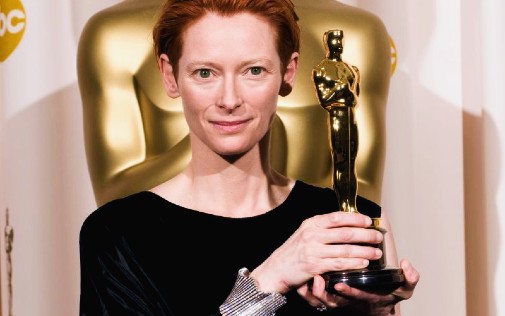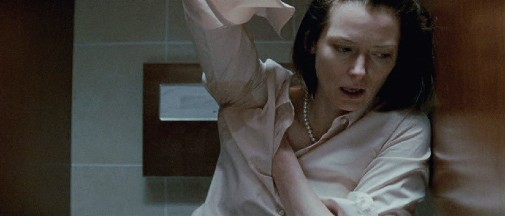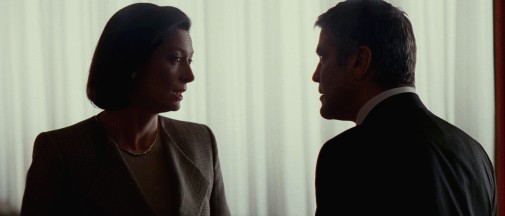To love the Oscars is to live in perpetual disappointment. The Academy can celebrate cinematic excellence and their choices may even serve as a gateway to a cinephile's love for the seventh art. However, more often than not, great artistry is left unrewarded while more conventional fare coasts by and triumphs. When it comes to actors, it isn't rare to find stupendous professionals whose labor was and will never be recognized by AMPAS. Perchance their filmography is too foreign, their style too outré or their directors too artsy. Whatever the reason may be, an Oscar obsessive quickly learns that a lot of their favorites will never get close to winning that little golden man.
Sometimes, though, there can be wonderful surprises. One such event took place in 2007. Quite frankly, all these years later, I still can't believe this happened…

The 2007 Best Supporting Actress category was a notoriously wide-open race. While the lineup of five nominees was quick to solidify through the precursors, there was no consensus regarding who would win come Oscar night. The contenders were Cate Blanchett's protean Bob Dylan in I'm Not There, Ruby Dee as a judging matriarch in American Gangster, Saoirse Ronan's devious innocence in Atonement, Amy Ryan's narcissistic mother in Gone Baby Gone, and Tilda Swinton as an attorney with no scruples in Michael Clayton. Going into the ceremony, Blanchett had the Globe, Dee the SAG, Ryan the Critic's Choice Award, and Swinton the BAFTA. Ronan, she was just happy to be there.
Oscar pundits were torn when predicting a winner and, looking through articles of the time, it's easy to find people batting for every nominee except Ronan. The two most likely victors appeared to be Dee or Blanchett, each one blessed with a strong narrative. The older actress was enjoying the first nomination in a legendary career, making her Oscar coronation feel like a celebration of her legacy. Blanchett, on the other hand, had gotten superb reviews that pointed to her achievement as a great feat of transformative acting. AMPAS loves a chameleon, especially when they practice showy celebrity impersonation.
To add to the Aussie's bid for the prize, she was a double nominee that year, having also conquered a Best Actress nod for Elizabeth: The Golden Age. The other two had their advantages, but felt like unlikely spoilers as the months of campaigning went on. Ryan had the benefit of playing a bad mother which is catnip to Oscar voters, but hers was the picture's sole nomination. As for Swinton, the general love for Michael Clayton bode well for her but neither the performance, the role, nor her reputation as an arthouse mainstay made her out to be an obvious winner. That's not to say she's bad in the movie or didn't deserve her award, quite the contrary.

From her first scene, Swinton plays Karen Crowder as a woman unraveling. Sweaty and going through a full-blown panic attack, she's introduced to us in a most unglamorous manner, underlining the banality of Michael Clayton's default antagonist. As the movie flashes back to before everything went to shit, Swinton is allowed to delineate the artifice of her ambitious character's façade. We watch Karen rehearse what she's going to say in a press conference, observing, through the repetition of gestures and words, how her mask of cold professionalism is built. Because of that, when we witness the result of such preparation, there's an edge of despair to her boardroom shtick.
The film presents Karen in a constant state of self-obsessive performativity, a corporate actress trying at all costs to remain in control, even if people have to lose their lives for her success. It's easy to imagine such a creature being portrayed with emotionless monstrosity, but Swinton reminds us of this woman's fallibility and harried mental state. She's no supervillain but her evil actions are no less venomous because of their mundanity. Karen's an animal trying to survive, a workaholic whose worldview is limited to profits, results, and has no disposition to consider the price she's paying for power. This woman sold her soul long before she ever ordered the murder of an unstable lawyer.

All in all, Swinton is sheer perfection, but her win feels miraculous. Her adversaries had showier roles, even though some of them were drastically shorter. She had next to no Oscar narrative and there's also the fact that Tilda Swinton is a delightfully weird artist whose work often feels more suited to an art gallery than the multiplex. Sometimes I have to remind myself that the star of Derek Jarman's best films, Sally Potter's Orlando, Luca Guadagnino's Suspiria, and so many other cinematic oddities, is an Oscar-winner. It still appears too good to be true and remains a beacon of hope when the Academy's choices swerve towards the indefensible. Sometimes, Oscar gets it right.
Michael Clayton is new to streaming on HBO Max, HBO Now, and HBO Go. You can also find it on DirecTV or rent it from Amazon, Google Play, Youtube, etc.